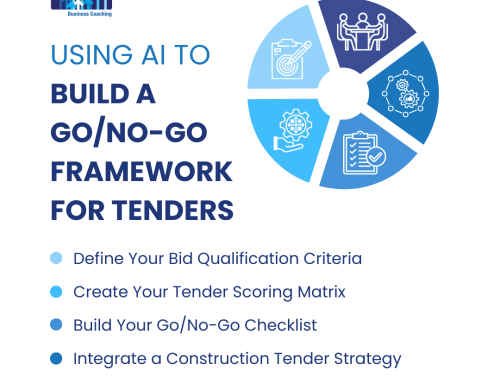Tender Glossary: Know Your Terms
A
Alternative bid
Initiate an offer that is alternative to the tender requirements. Meaning the offer is different to what is being asked for in the tender procedure. Often the alternative bid provides advantages or benefits over the stated requirements regarding cost and/or performance. Also known as variant bid (see variant bid).
Approach To Market (ATM)
ATM refers to a business opportunity advertised on a tender site. ATMs can be published as an open, prequalified or limited tender procurement method source.
Award criteria
A list of key criteria or requirements, which is required for a contract to be awarded.
Awarded tender
Awarded Tenders (known as contracts) is the issue of an order or contract to a supplier due to a competitive tendering/bidding process. Differs from a Closed Tender in that it has been both closed and awarded.
B
Best and Final Offer (BAFO)
The detailed and fully-priced offer submitted by a respondent for a contract, which represents their lowest price.
Bid Bond
A security deposit ensuring that the bidder will enter the contract if selected. It’s returned if you win and sign the contract or lose the bid.
Bid Management
Involves the process of managing the submission of a tender for a contract and managing the bid team. One of the elements behind a great bid management is a good bid team. It is common for larger businesses to have a dedicated bid writing department.
Bid
A formal proposal to deliver goods or services at a specified price, as well, describing that the tender contract requirement will be met. includes the quote, mandatory documentation and client-specific requirements. A supplier submits when interested in supplying goods and/or services to the buyer (the organisation that put out the tender).
Bill of Quantities (BOQ)
A list that shows all the materials and work needed for a project, including how much it’ll cost.
Business opportunity
Business opportunities can be defined in different ways, as the term means different things to different people. Generally a business opportunity involves the sale or lease of any product, service, equipment etc. that will enable the purchaser-licensee to begin a business.
Buyers
A Buyer is someone who intends to buy goods or services. The buyer could also be the organisation that puts out the tender. Also known as the issuer or procurer.
C
Closing date
Also known as the deadline for submission. This is the date and time that a tender submission needs to be delivered and received. Tenders submitted after this date might not be considered in the competition.
Commission
In context with procurement, this usually refers to the European Commission. More about the European Commission here.
Common-Use supply Arrangement (CUA)
An arrangement intended for whole-of-government use established between the principal and the successful offeror (including without limitation a standing offer arrangement, a register of pre-qualified suppliers, panel arrangement or preferred supplier arrangement).
Compliance Criteria
The rules and standards your bid needs to follow to be considered. This includes following laws and safety guidelines.
Conditions for participation
The minimum conditions you must possess to participate in a procurement process. For example, to be considered, you may need to have a certain registration, qualification, or other prerequisites.
Conditions of contract
Are set rights and obligations that the contracting parties need to follow when a contract is awarded.
Conditions of offer
Also known as conditions of the tender. They are the terms and conditions that govern the approach to market process.
Contract award
Follows when the procurement process is finalised, contracts are awarded to the winner of the tender competition.
Contract award notice
An announcement that tells everyone who won the contract, including the price and why they were chosen.
Contract variation
An alteration or an update to the terms of a contract mutually agreed by both parties to the contract. This differs from an addendum in that it is done after the contract has been awarded.
Contract
A legally binding agreement entered into between a Buyer and Supplier to perform/deliver specified goods and/or services. A contract can also be referred to as Awarded Tenders.
Contractor
Respondents or Suppliers whose offer has been accepted by the Buyer.
D
Deadline for submission
Also known as the closing date. This is the date and time that a tender submission needs to be delivered and received. Tenders submitted after this date might not be considered in the competition.
Defects Liability Period
Time after the job is done when you’re still responsible for fixing any issues that pop up.
Deliverables
Also known as statement of work or statement of requirement. Deliverables are usually detailed in the specification of the approach to market documentation and are linked to details.
Due Diligence
The detailed inspection of a company’s or individual’s financial records, performance, and capabilities before signing a contract.
E
Electronic tendering / e–tenders
An electronic tendering solution facilitate the entire tendering process from the announcement of requirements to placing the contract awards. This include all required documents in an electronic format.
EOI (Expression of interest)
A multi-staged process that is used early in the procurement process. EOI is generally used when information required is very specific and the buyers are unsure if the suppliers are able to deliver these requirements. Potential suppliers are shortlisted and examined before seeking detailed bids from the shortlisted tenderers.
e-Procurement
The term used to describe the use of electronic methods of the purchasing process. It can include e-Tendering, e-Procurement and e-Payment (including e-Invoicing).
Evaluation criteria
Standards or system to analyse or to rank importance. These are used to assess offers and compare alternatives put forward by respondents to a request. The evaluation criteria is an important part of a response to tender as the buyer will make a shortlist based on this.
Expression of Interest (EOI)
A way to show you’re interested in a project before the actual bidding starts. It’s like raising your hand to say you want more information.
Expression of Interest (EOI)
Potential suppliers interested in, and capable of, delivering the required goods or services will be required to provide an EOI. Potential suppliers are asked to provide information on their capability to do the work. It is usually the first stage of a multi-stage tender process. Read more about Expression of Interest.
F
Forward procurement / future tenders
Advertisements on forward procurement or future tenders, schedules give suppliers an idea of what tenders may be available in the coming year. For example, the Australian Government releases an annual procurement plan that scopes proposed procurements for the coming year (published before 1 July each year).
Framework Agreement
A long-term agreement with clients for providing specified services or works at set prices, allowing for multiple projects without re-tendering.
Framework Agreement
Is an agreement with suppliers that set out terms and conditions for making specific purchases governing contracts to be awarded.
G
Goods
Any physical/tangible item.
Governance
The framework of authority and control within an organization and establishment and implementation of policies.
I
Initial Expression of Interest (IEO)
When high-value public sector contracts (tenders) are advertised, they usually start with asking parties interested in bidding to write and express their interest in bidding. Often known just as EOI (see Expression of Interest).
Invitation to Register Interest (ITRI or IRT)
ITRI provides contractors and suppliers with an opportunity to provide information about the goods and services they supply that may be relevant to the project/work. See Invitation to Tender above.
Invitation to Tender (ITT)
Also called request for tender (RFT). This is the initial step in a tendering process where selected suppliers are invited to compete and submit an offer within a specified timeframe. It’s a formal call for bids on a project. It’s more detailed than an EOI and asks for your official offer. Typically it includes a background, rules of tender, contract specification, questions or information required and a draft contract. This can also be expressed as Invitation for Bid – IFB, Invitation for Tender – IFT or Invitation to Bid – ITB.
Invitation to Treat (ITT)
In simple terms, an ITT is an invitation to another person to make an offer to contract. An invitation to treat is an invitation for customers to submit an offer and indicates a willingness to make a deal.
Issuer
The entity or organisation that initiates and publishes a request for tender (RFT). The issuer seeks to procure goods, services, or works from suppliers or contractors. The issuer is responsible for defining the tender requirements, evaluation criteria, and the terms and conditions of the contract.
Key differences between a buyer an an issuer:
Primary Responsibility: The buyer’s primary responsibility is to procure what they need, whereas the issuer’s primary responsibility is to manage the tender process.
End User vs. Process Manager: The buyer is the end user of the procured goods or services, while the issuer manages the procurement process.
Role Overlap: In many cases, the buyer and issuer can be the same entity, especially in smaller organisations where the procurement team handles both roles. In larger organisations, these roles might be distinct, with the procurement department acting as the issuer on behalf of the internal buyer.
Example Scenario:
Buyer: A construction company (the buyer) needs new equipment for a project.
Issuer: The procurement department within the construction company (the issuer) creates and manages the tender process to acquire this equipment.
J
Joint Venture (JV)
Normally a business entity created by two or more parties with the purpose to achieve a specific task, such as win a tender, PFI, PPP and so on.
L
Late tender
Late tender is a tender received after the specified closing date.
M
Memorandum of Understanding (MOU)
A document used to record parties’ intentions in a less formal way than a formal contract document is not legally binding unless it specifically states that it is intended to be enforceable in the courts.
O
Offer
An offer is usually known as a bid or a response. This is the Supplier’s offer to supply the requested goods and/or services to the Buyer (Tender Issuer).
Open/public tender
Open or public tender is the process of a Buyer publicly inviting offers to supply required goods or services instead of a private request of just a few potential suppliers.
P
Panel arrangement
A panel arrangement (also known as a panel contract). It is a contract involving two or more suppliers, often because large volumes of the goods or services are regularly required which might be too much for a single supplier.
Parties
A person or organization involved in the signing of the contract. Normally comprise of a supplier and a client with shared rights and responsibilities.
Performance Bond
A guarantee that you will complete the project as agreed. If you fail, the client can claim money from this bond.
Public private partnership (PPP)
See PFI.
Pre-qualification Questionnaire (PQQ)
Is intended to help public purchasers/buyers to shortlist the number of suppliers and form part of the restricted tendering procedure. PQQ includes questions regarding level of experience, capacity and financial standing.
Preferred supplier
A Preferred Supplier is a company that has been pre-qualified by the Buyer company to be part of a Preferred Supplier Arrangement (PSA) following a careful procurement process.
Procurement software
Also known as e-procurement software, simplify the procurement process through a cloud-based software solution.
Procurement
The process of obtaining good and/or services from an external source, usually through a tendering or bidding process. This includes determining requirements of the acquisition, selecting suppliers, award selection and other related functions.
Proposal
See bid
Preferred Supplier List (PSL)
Contains a list of suppliers that the business has specified to be of interest, and might be used in a specific acquisition.
Public tender
Tender advertised to the public market.
Purchaser (also called a buyer)
A government department, entity or agency that is intending to purchase goods or services from a supplier.
Purchasers
Also referred to as procurers or any organisation that releases or advertises a request to purchase goods and/or services.
Q
Quotation/quote
Refers to a document in the form of an offer to supply goods and/or services; usually in response to a Request for Quotation.
Quotation
Is the bid submitted in response to a request for quotation from a contracting authority.
R
Registration of Interest (ROI)
Similar to Expression of Interest (EOI). It is used to identify suppliers interested in, and capable of, delivering the required goods or services. Potential suppliers are asked to provide information on their capability to do the work.
Request for Application (RFA)
Notice that grants are available to fund certain types of programs. RFAs are usually released by a government agency or non-profit organisation and usually outline what types of programs are eligible, what the expectations are and how applications are submitted and reviewed.
Request for Information (RFI)
A request for information to gain a more detailed understanding of the supplier market and the range of solutions and technologies available. It may be used to develop documentation for a future tender.
Request for Proposal (RFP)
An invite to send in a detailed plan on how you would complete a project, including costs and timelines.
Request for Quotation (RFQ)
A process of inviting offers to supply goods and/or services involving simple documentation. In most cases, the purchase order is what forms the contract.
Request for Tender (RFT)
A process of inviting offers to supply goods and/or services and will usually include documentation detailing the specific requirements of the Buyer. If you win an RFT bid, then you most likely will sign a contract.
Requirements
The requirements specified by Buyers. These are used to evaluate bid responses.
Respondent
Someone who has submitted a bid response or offer in response to a request.
Restricted procedure
Usually limits the request of tenders to a selected number of suppliers.
Restricted tenders
A restricted tender is a tender that has restricted access to the documents. This may be because of confidentiality. The Issuer normally requests a supplier to apply for access to control who is seeing the documents or get them to sign a confidentiality deed. Not to be confused with an Invited Tender.
Retention
Money that’s held back until the job is done to make sure everything is finished properly. It’s usually given back after fixing any last-minute problems.
S
Scope of Works (SOW)
A document of agreement on the work you’re going to perform on the project.
Selection Criteria
The checklist used to pick the best bid. This can include your price, experience, and how well you plan to do the job.
Services
A service is an intangible product. Services is the whole of the services provided or performed by a contractor under a contract. Any variations provided for by the contract include all and any goods, materials, plant, machinery or equipment supplied, provided, or used by the contractor.
Service Level Agreement (SLA)
An agreement between two or more parties. Where one party is the customer and the other party is a supplier delivering a service.
Small and Medium Enterprise (SME)
Firms with less than 250 employed people, with a turnover of less than €50m.
Standing offer arrangement
Standing offers are competitively tendered agreements that are used when a State agency has an ongoing, repetitive requirement for products and/or services, but the exact volume of products or services is not known.
Subcontractor requests
Subcontractor Requests are requests from Buyers/main Suppliers who are seeking quotes and prices from suppliers in relevant service industries to assist with specified work/projects. Suppliers are usually qualified/licensed and are required to prepare quotations. To view the latest subcontractor requests, click here.
Subcontractor
A business or person who is hired by the main contractor to perform a specific task as part of the overall job or contract.
Supplier
The person or organisation seeking to supply goods and/or services in response to a buyer/purchaser request. The supplier is responsible for delivering goods or services, that meets the clients requirements and within a specified time and period.
T
Tender / tendering
The process of bidding for work or contracts. Buyers seek the best price or value for money from a selection of prospective suppliers. The whole process is done by competitive tendering.
Tender Bid
Your official offer to do the job, including how you’ll meet the project’s needs, your price, and how long it’ll take.
Tender Document
The packet you get with all the details for the job. It tells you what needs to be done and how to submit your bid.
Tender Evaluation
The process of reviewing and assessing all bids to decide the best one based on set criteria.
Tender response form
The documents used by you to respond to an approach to the market. If successful, these usually form the basis of the contract schedules.
Tenderer
The Supplier or interested party submitting a tender in response to an RFT (Request for Tender)
Total Contract Value (TCV)
The estimated total value (including extensions) of the contract for the entire life of the contract.
V
Validity period
The period of time for which a tender will remain open for consideration and acceptance by the Buyer.
Variant bid
Characterized as a more flexible style than regular bids. Complies only with the basic requirements selected for the awarding contract. Two bids can be submitted in the competition, one with exact match of the criteria and one “variation”. This opens the chances of winning and innovation.
Variations
Changes to the job after you’ve started. Both sides need to agree on how this affects time and cost.
Vendor
Same as supplier (see above).
Verbal quotation
A verbal process of inviting offers to supply goods and/or services from potential suppliers.
W
Written quotation
A written or electronic process of inviting tenders to supply goods and/or services involving simple documentation.






